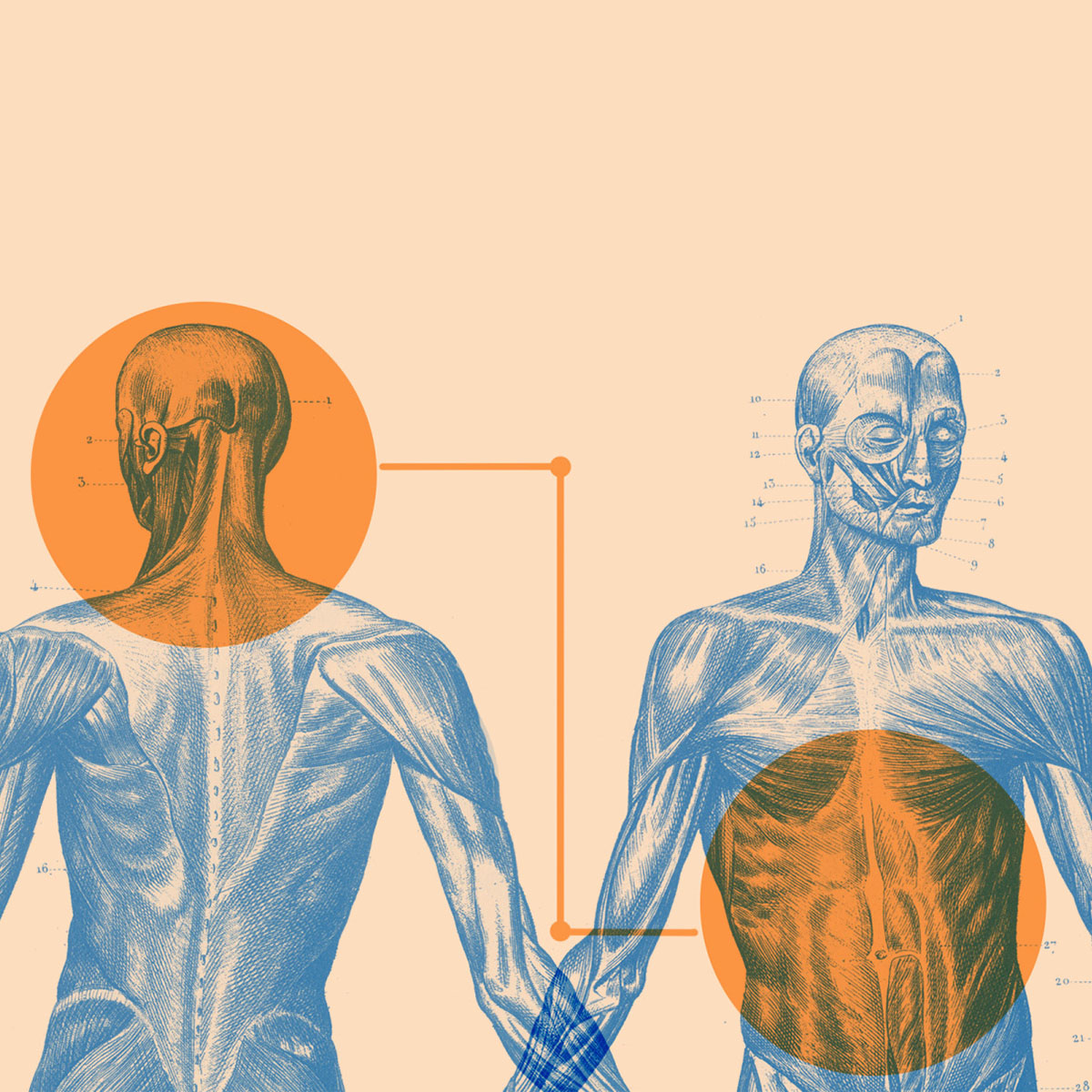
Hippocrates wasn’t joking around when he said that “all disease begins in the gut”. Nearly 2000 years later, we’re finally realizing that he may have actually been onto something. In the past decade, science has slowly started to uncover the connection between the Brain and the Gut and it’s a stronger connection than we ever could have guessed. In fact, the health of the gut may be the new solution to all of our mental health needs.
Science has been aware of a connection between the brain and the gut for years now. While it may seem like your digestive system is miles away from your brain, the two are actually very closely connected by the central nervous system via a pathway known as the gut-brain axis. This pathway allows the gut to both send and receive signals from the brain. The main connection in this pathway is the Vagus nerve which travels all the way from the base of the cranium down into and through the digestive system. This nerve is especially sensitive when it comes to digestion. Inflammation in the digestive tract can cause the nerve to fire, affecting function in the brain. This is one of the reasons why people with leaky gut syndrome and other digestive issues tend to also have mental health issues such as stress, anxiety and depression. Disruption in the gut is physically connected to how the brain functions, but exactly how the two interact is still widely unknown.
But nerves aren’t the only thing playing a role in the Gut-Brain connection. The gut microbiome seems to play a massive role as well and is still widely misunderstood. In fact, there are hundreds if not thousands of studies being done on the role of the gut microbiome as we speak. One thing is for sure, the composition of our gut flora plays a massive role in our mental health. John Cryan has been studying the connection between early trauma and eventual development of IBS. In his studies, he found that young mice separated from their mothers to create a traumatic experience actually have a significant decrease in gut microbiome diversity in adulthood, affecting their digestion as well as their mental performance. Other studies in which mice were raised without proper gut flora showed that the mice had stunted brain development and displayed severe nerve disfunction. This also lead to increased anxiety behavior, fear, learning issues, stress and a deficit in social behavior.
These types of studies suggest that the gut microbiome may play a complex role in our development and be as important as our genes, influencing everything from our immune function to our weight to our metabolism. This opens up a completely new form of medicinal therapy centering around the composition of the gut microbiome. Gut flora therapy has already been in practice in the form of fecal transplants. Recently, this practice has gained popularity in people suffering with severe IBS. In a study of 48 patients with IBS who underwent a fecal transplant from a donor with a healthy gut microbiome, 58% showed complete improvement in digestion and alleviation of previous IBS symptoms. Similarly, studies have been conducted in which gut bacteria from people with depression was transplanted into rats only to show that the rats went on to develop depression related behavior.
This idea that transferring bacteria from patient to patient can alter mental behavior is the focus of Psychobiotics, a new form of medicinal therapy that would essentially involve the use of probiotics to alleviate and treat psychotic ailments. The hope is that specific mental health problems and diseases may one day be diagnosed via analysis of gut bacteria and treated via diet, supplementation and potential gut bacteria transplants rather than traditional drugs currently in use that tend to have a negative affect on gut health anyways. This advanced Gut-Brain connection is the future of medicine and focusing on gut health may become the first step when treating any and all ailments.

